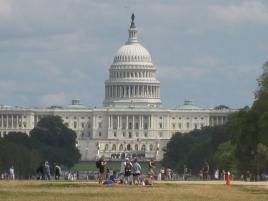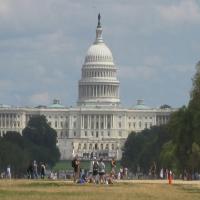GREAT Act Bills Call For Review of Nonproprietary Indentifier

The House and Senate now have each introduced versions of the Grant Reporting Efficiency and Agreements Transparency (GREAT) Act of 2019 — H.R. 150 in House and S. 1829 in the Senate — which would require the Office of Management and Budget (OMB) and the Department of Health and Human Services (HHS) to create a comprehensive and standardized data structure to cover all data elements reported by recipients of federal grants and cooperative agreements. If that were simply the sole purpose of the legislation, that would be a bonus in itself for grants administration.
However, there is a provision near the end of the proposed legislation that should brighten the faces of certain stakeholder groups. According to S. 1829, which was introduced this month by a bipartisan group of legislators in the Senate Committee on Homeland Security and Government Affairs, OMB and HHS would be required to determine whether to use nonproprietary identifiers. In making this determination, OMB and HHS would consider factors such as accessibility and cost to recipients of federal awards, agencies that issue federal awards, private sector experts, and members of the public, including privacy experts, privacy advocates, transparency experts and transparency advocates. The bill states that no later than the earlier of one year after the date of the bill’s enactment into law or the date on which OMB and HHS establish data standards under the legislation, OMB and HHS would publish and submit to the Senate Committee on Homeland Security and Governmental Affairs and the House Committee on Oversight and Reform a report explaining the reasoning for the determination.
This must be welcome news for the folks at the Data Coalition, who have railed against Dun & Bradstreet's (D&B) proprietary nature of the DUNS number, which is the universal identifier used on the federal level by the General Services Administration (GSA) to track business with grantees and contractors in the System for Award Management (SAM.gov). The organization has long claimed that Dun and Bradstreet’s monopoly on the federal entity identification and validation market for identifying grantees and contractors means that federal spending data cannot be open.
GSA was already moving away from D&B after picked Ernst & Young in March as its entity validation partner to come up with a new method of identifying contractors and grant recipients — including state and local governments. Many stakeholders believe this change lead to a system that makes it easier to access data about federal grants and contracting. Through this new partnership, GSA aims to move toward a government-owned identifier, which it will call the System for Award Management Managed Identifier (SAMMI). We’ll continue to watch for developments in this area.
Join us for our following Federal Grants Forums:
Pittsburgh, Pa., July-23-25, 2019
Dallas, Texas, Oct. 16-18, 2019
Learn more at http://grants.thompson.com/conferences.aspx



